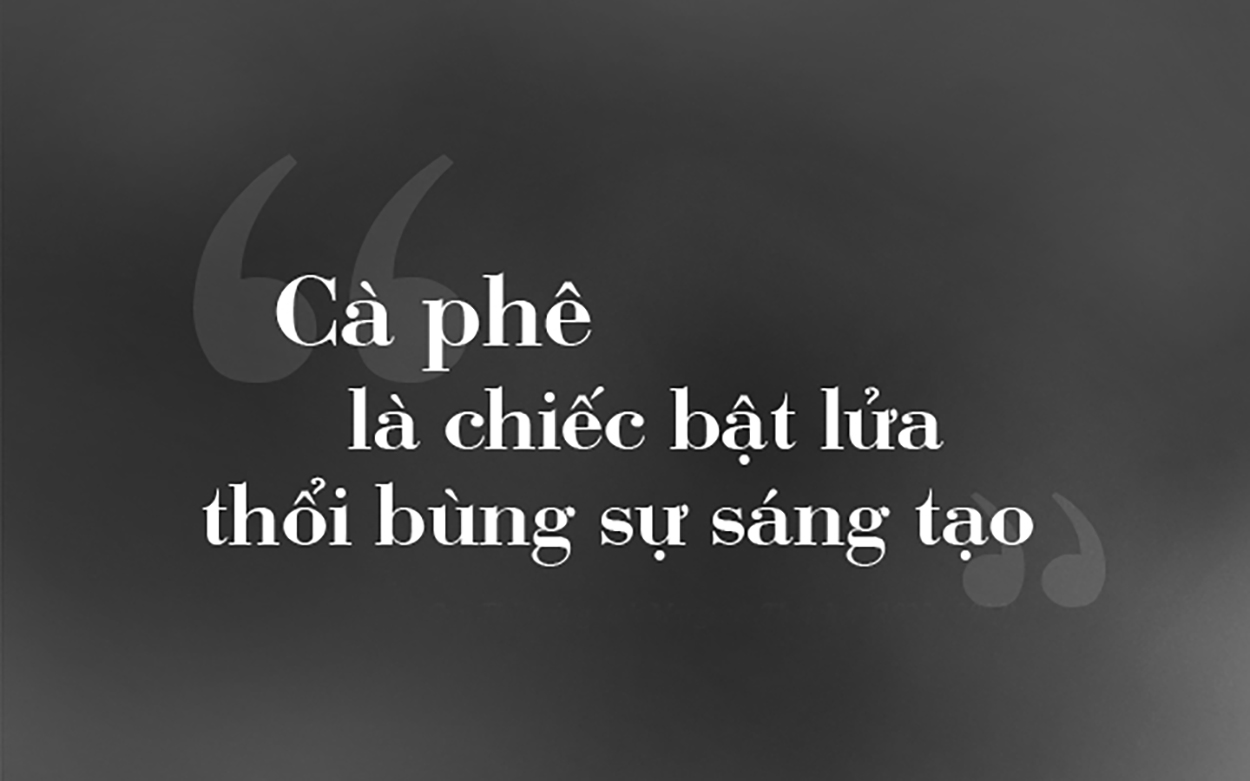
The Japanese have shaped the Tea Ceremony into a national ethic, an art of living conveyed through the enjoyment of a cup of tea. Meanwhile, Vietnam - a leading coffee powerhouse in the world , has the world's best Robusta coffee beans, has a rich history of coffee enjoyment culture for hundreds of years, but up to now, the value of Vietnamese coffee is still in the low segment, mainly exported raw and has not been properly shaped as the inherent position of the industry and the country. With the desire to bring the Vietnamese coffee industry to a new level, enhancing the value of coffee not only as a regular drink but also at the level of cultural coffee, artistic coffee, spiritual coffee... to philosophical coffee, worthy of the position of the world's coffee powerhouse - Trung Nguyen Legend Group has spent time and passion for many years to research the history, culture, art... of coffee in all areas of human life so that coffee becomes "Philosophical Coffee". Throughout the journey of creation and development of Trung Nguyen Legend, the spirit of dedication to serving the community has always been the core through many action programs to Create great aspirations, great directions; to build a new position for the Vietnamese coffee industry on the world coffee map. The Japanese did it! We Vietnamese can do it too and do it better! |
A new perspective on linguistic research
Linguistics has a long history dating back to ancient civilizations and has been of interest to many intellectuals and philosophers during the Middle Ages and Renaissance. However, the 19th century was the period of exploration and formation of an important foundation for linguistics. In particular, studies on comparative linguistics and phonetics have created the foundation for linguistics to become an independent science in the 20th century.
The emergence of Comparative Linguistics in the 19th century was one of the most important developments in linguistics. This school studies the history of languages, comparing closely related languages to build a general theory of the origin and evolution of language. At the same time, this period also welcomed the birth of Phonetics, which focused on the analysis of the sounds of language, how sounds are pronounced, and the physical properties of sounds. Although these methods were all supportive to the study of other aspects of language such as sound, grammar, and vocabulary, they paid little attention to the internal structure and communicative function of language in real life.
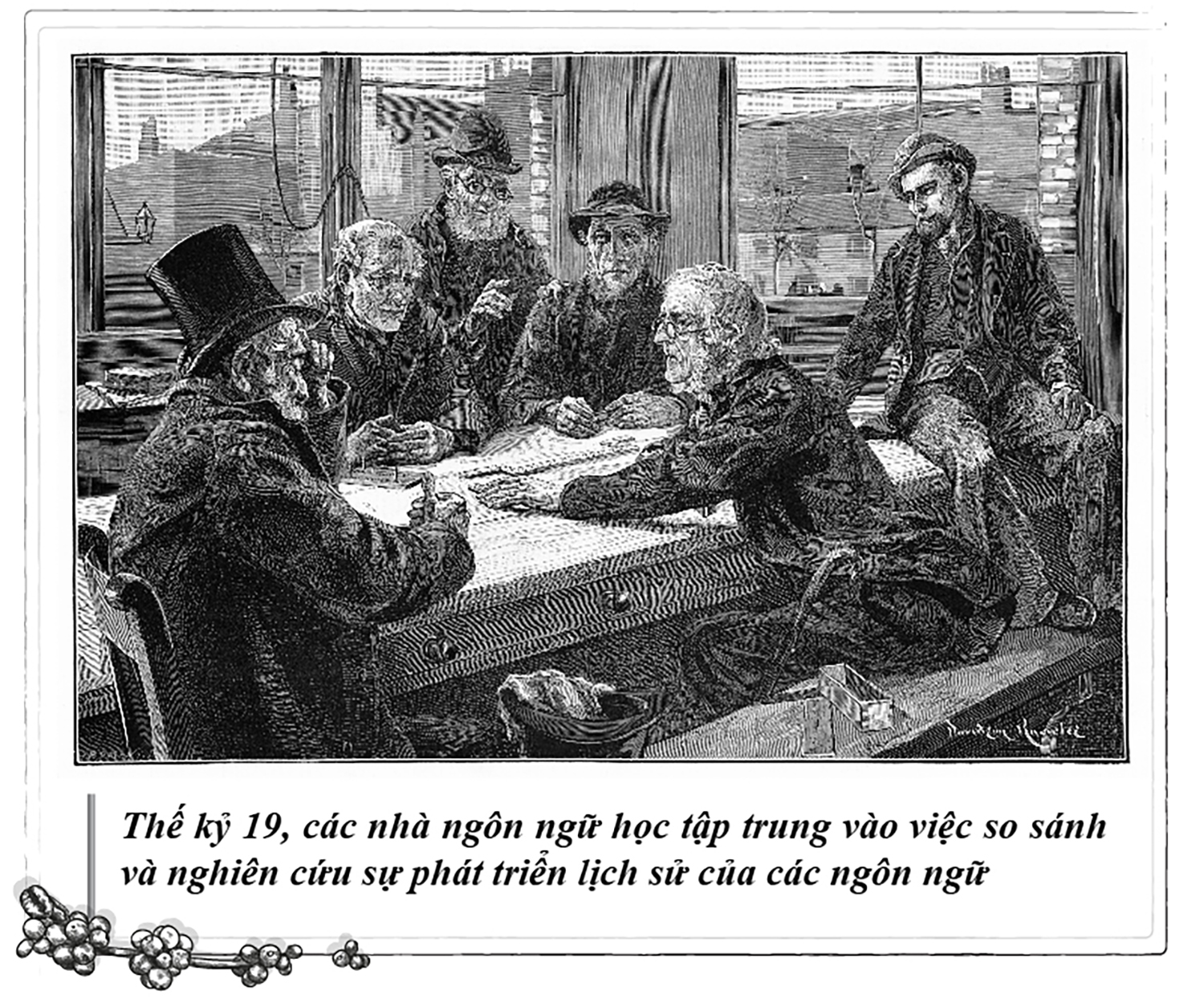
In the 20th century, Europe experienced many major turning points in its social and cultural history. After the collapse of the Austro-Hungarian Empire, Czechoslovakia (today's Czech Republic) was established in 1918 and Prague (Prague) became the capital of this new country. This event created a new political situation and opened a period of strong development in the fields of culture, art and society. From an ancient city with the influence of the Austrian Empire in the 19th century, Prague gradually transformed itself into an important intellectual and artistic center in Central Europe. Here, ideological revolutions, political movements and new cultural trends were formed and developed strongly in the 20th century.
In particular, in the 1920s, a group of influential literary critics and linguists in Prague and Brno (Czech Republic) such as Vilém Mathesius (1882 - 1945), Nikolay Trubetskoy (1890 - 1938), Roman Jakobson (1896 - 1982) ... founded the Prague School of Linguistics. The group was active in the 1920s - 1930s, making revolutionary contributions to the study of language. The group's outstanding research works were Roman Jakobson's theory of semantic functions and Nikolay Trubetskoy's theory of grammatical and phonetic structures . The theories developed emphasized that language is not only a tool for transmitting information but also has the function of expressing, communicating and organizing thoughts.
In 1928, at the First International Linguistics Congress, Prague Linguistics published a series of important theses emphasizing the study of language as a structured system such as: phonology, grammar and language functions. These theses not only changed the way language was studied at that time but also had a profound influence throughout the 20th century. From the research method of describing, listing and analyzing the grammatical rules of a specific language, the Prague Linguistics school shifted to focusing on the study of semantics, functions and structures, the relationships between elements in the language system. The group's theory has deeply influenced modern linguistic research schools such as: Structural Semantics, Functional Grammar, etc.
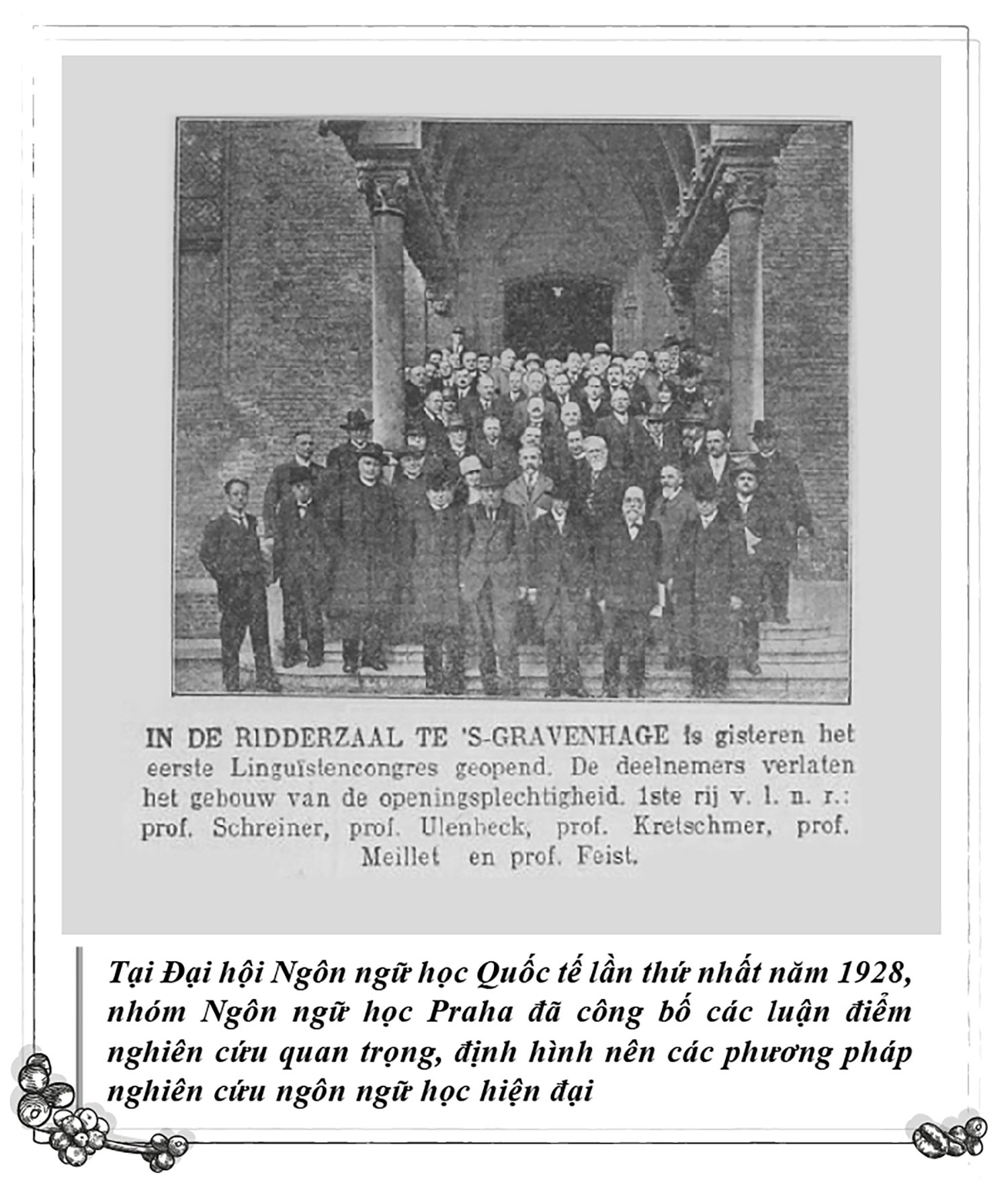
In addition to linguistics, Prague Linguistics was also interested in other areas such as aesthetics, literary theory, ethnology and musicology. In 1935, the group began publishing a journal called Le mot et l'art du mot (The Word and the Art of the Word) . Its constant activity, with presentations at conferences and publications, helped make Prague Linguistics one of the most influential schools of linguistic thought in the 20th century.
Place of birth and promotion of linguistics Prague
As an intrinsic part of Western culture, coffee and coffee shops have been catalysts for great ideas, contributing to the cultural and social advancement of many nations over the centuries.
In Prague, once part of the Austro-Hungarian Empire, characterized by a multinational, multi-ethnic society, the café scene here is culturally diverse and intersecting. At the same time, the socio-cultural life of Prague has been built through a long journey from major political and social changes, ideological revolutions, to the strong development of intellectual culture and art. As an essential center of community life, cafés have been closely linked to and contributed to the transformation of Prague society.
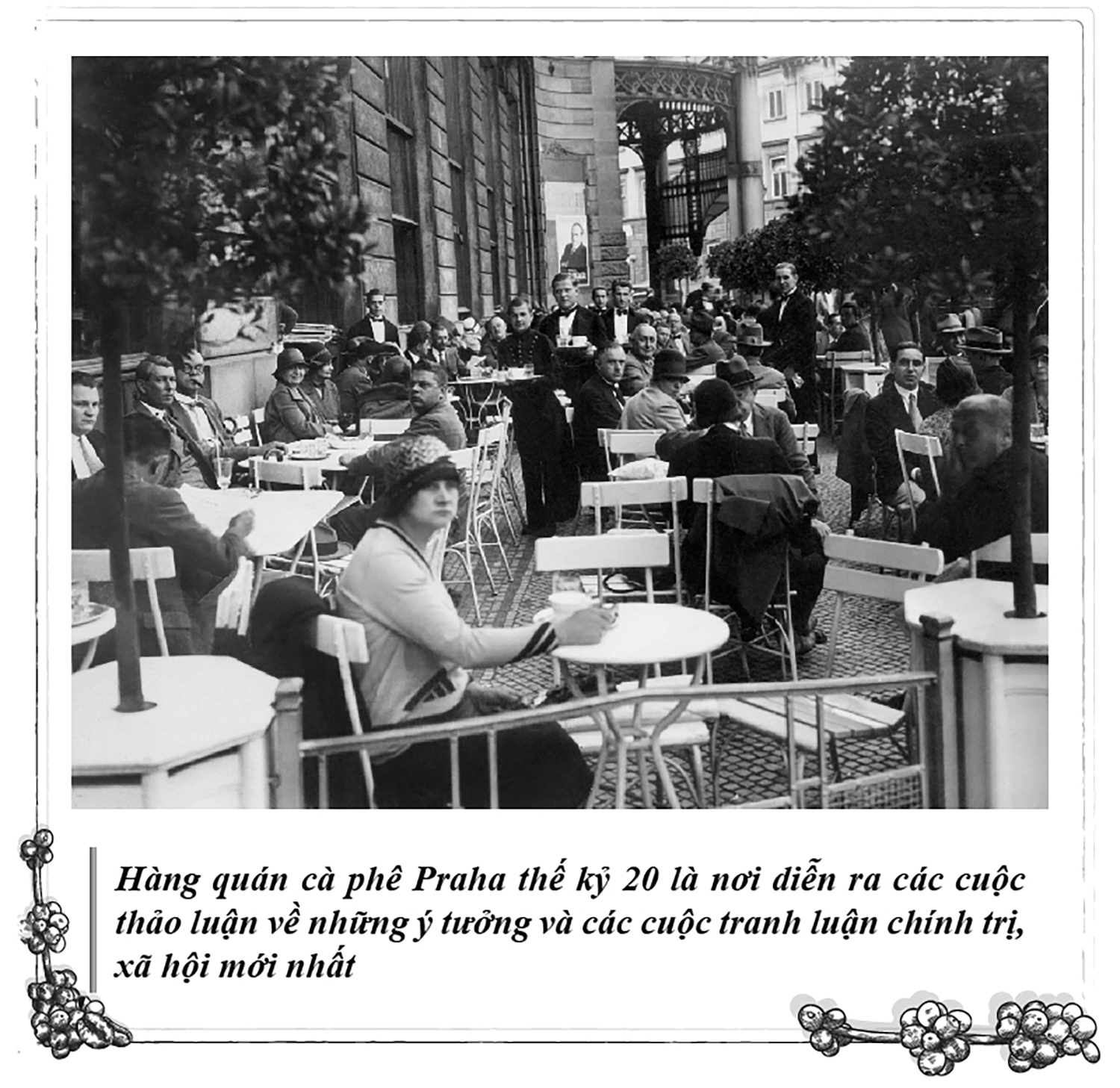
When Prague developed strongly, becoming a bright spot in the Central European region, Prague coffee shops were the meeting centers of writers, linguists, philosophers, artists... from many different countries and ethnicities such as Germany, Austria, Russia, Israel... A series of spaces such as Café Arco, Café Union, Café Slavia, Café Louvre... became favorite destinations of contemporary intellectuals, such as: writer Franz Kafka, poet Jaroslav Seifert, playwright Václav Havel, linguists Roman Jakobson and Nikolai Trubetzkoy... In the free and creative atmosphere of coffee shops, intellectuals crossed social and political boundaries, participated in dialogues, openly exchanged ideas, formed new works, theories and ideologies, deeply influencing culture and society throughout Europe.
In particular, the Prague Linguistics School was founded at Café Derby in Prague, where the group met in its early years. Some members of the Prague Linguistics group, including Roman Jakobson, Nikolai Trubetzkoy, Jan Mukarovsky and Vilem Mathesius, frequented Prague cafés to find new ideas and exchange ideas, developing influential linguistic theories. Café Arco, Café Slavia, Café Union, Café de Paris and Café Louvre were the group's regular meeting places.
One of the prominent theories of the Prague School of Linguistics was phonological theory, developed primarily by Nikolai Trubetzkoy. Nikolai Trubetzkoy had profound discussions about phonology in coffeehouses with members of the group and other intellectuals, especially at meetings at Café Slavia. The ideas discussed and developed in coffeehouses contributed to his work Principles of Phonology , one of the most influential works in the history of modern linguistics. The work not only reshaped the field of phonology but also opened up methods of structural analysis of language, which in turn influenced other theories such as phonetics, semantics, and modern grammar. In addition, Jan Mukarovsky, another member of the group, also developed the theory of literary structure (Literary Structuralism) which was distilled from discussions at Café Union and Café Slavia.
Café Slavia became a symbol of intellectual exchange and theoretical development of the Prague Linguistics group, appearing in a number of literary works such as: Halleyova kometa by Jaroslav Seifert, Kavárna Slavia by Ota Filip...
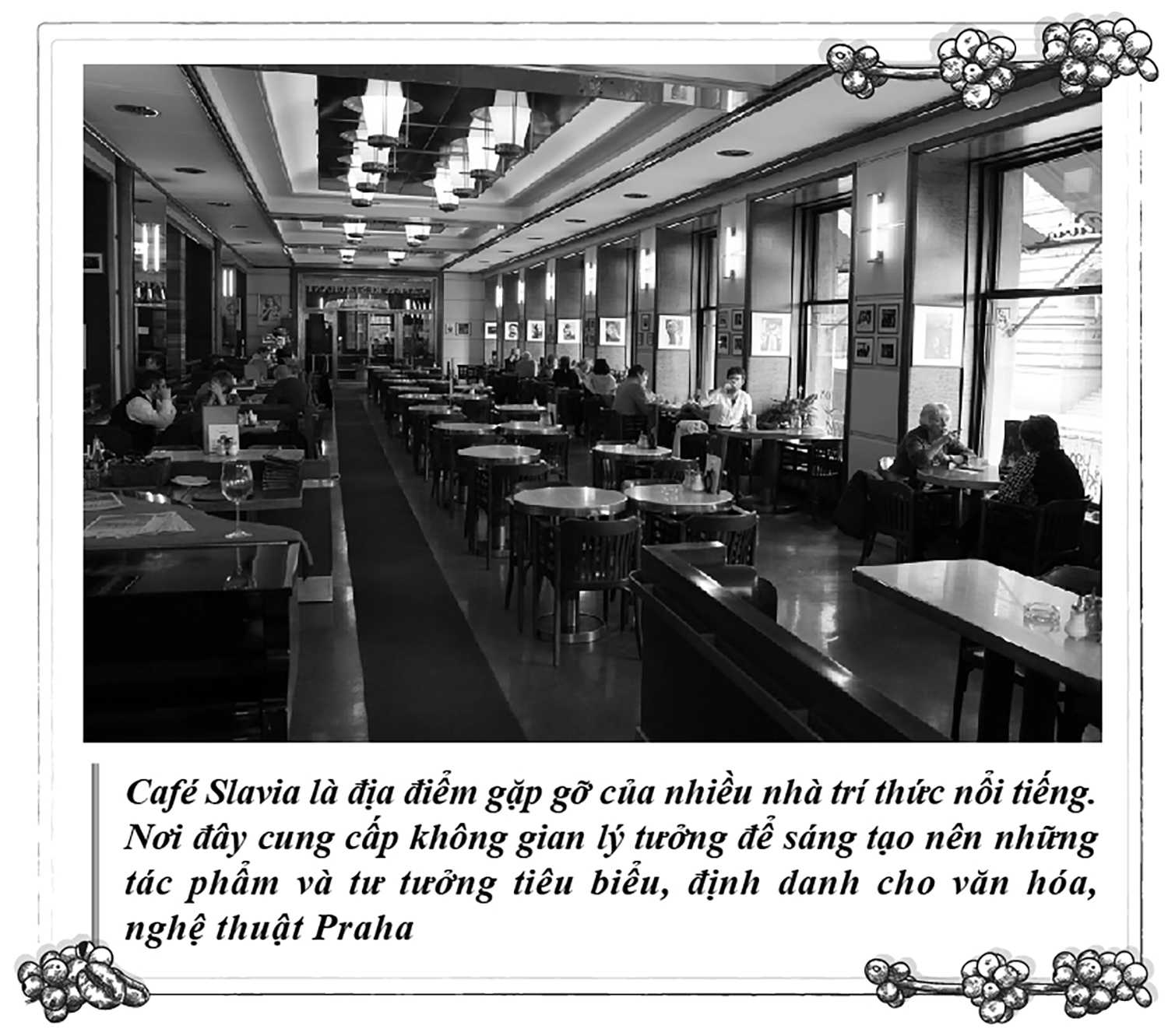
Prague coffee shops have contributed significantly to the common development of humanity in the fields of culture, art, especially linguistics. It was from the lively dialogues and free exchange of ideas in coffee shops that the Prague School of Linguistics created a research method in linguistics, expanding the boundaries of human understanding of language. Through that, Prague has firmly affirmed its position as a vibrant cultural center of Europe, where the quintessence of intelligence and art converge.
https://youtu.be/0YBk_Rftz3M

Read the next part: Coffee - Energy of warriors
Source: https://thanhnien.vn/ky-107-hang-quan-ca-phe-trong-tien-trinh-phat-trien-ngon-ngu-hoc-praha-185241125211340221.htm



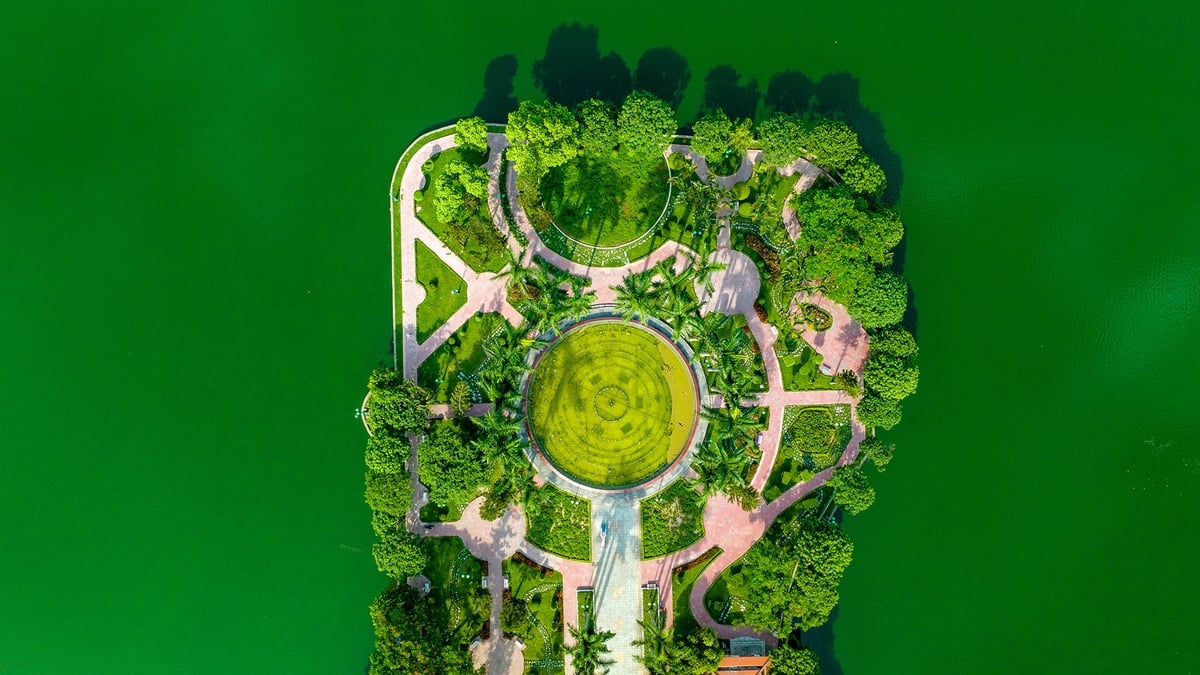
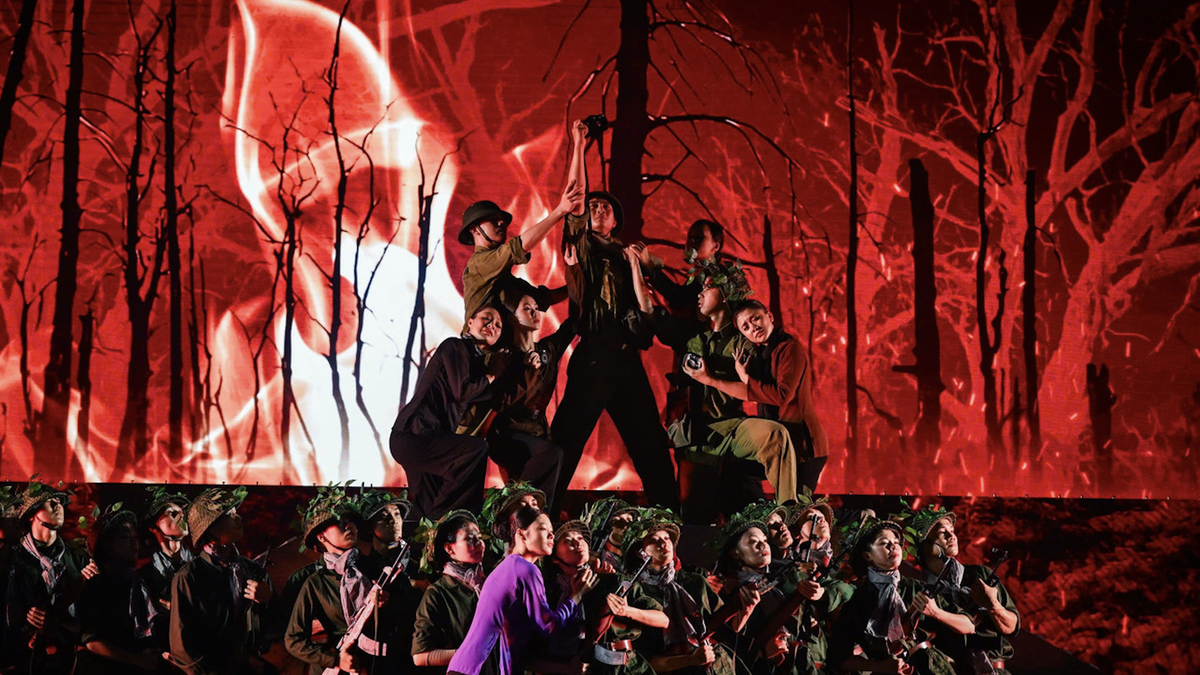


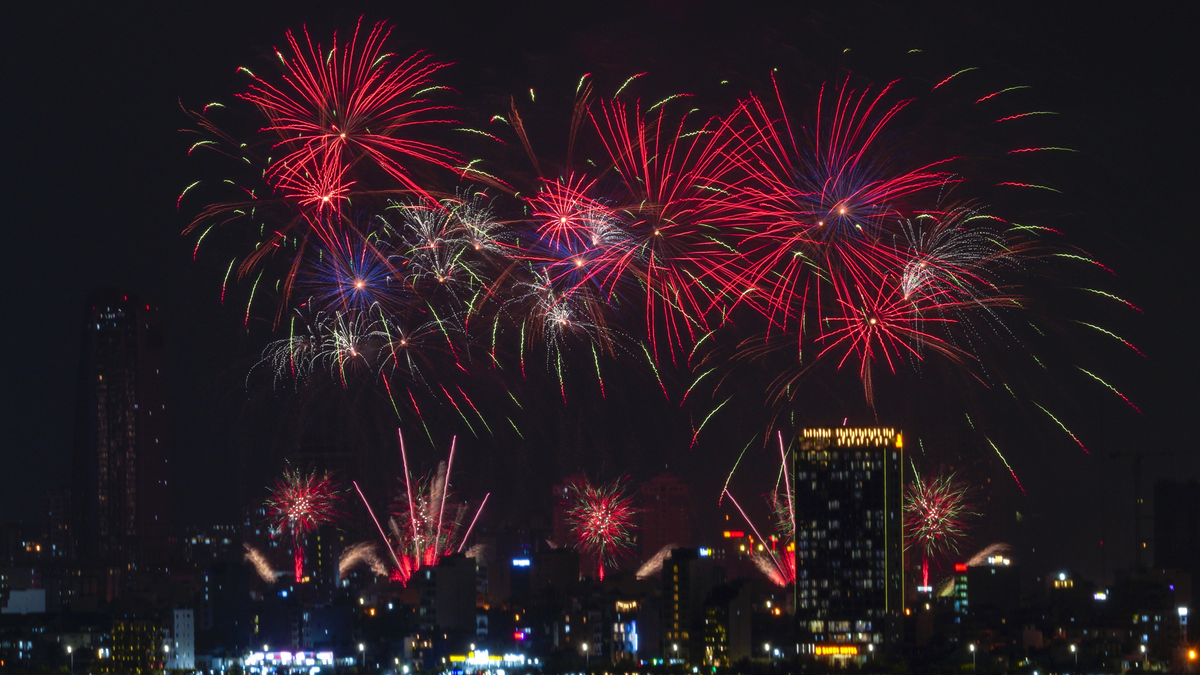
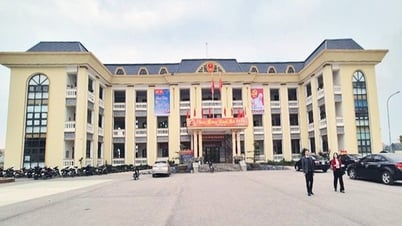



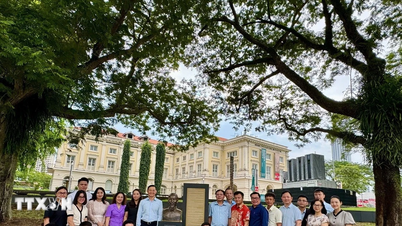









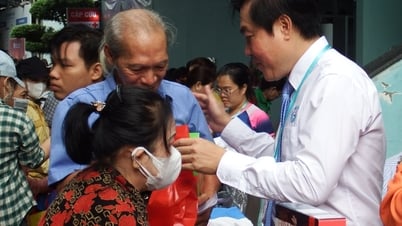




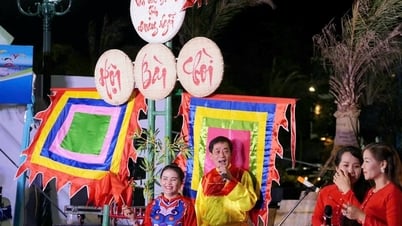

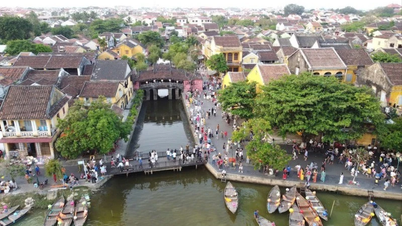

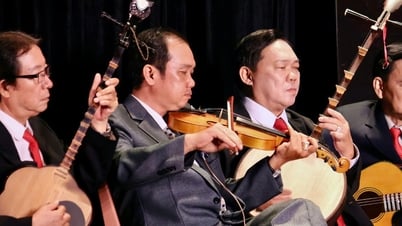









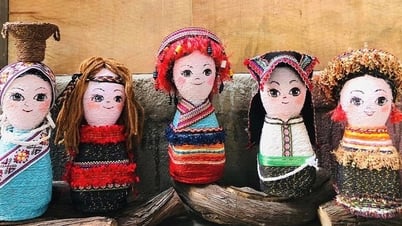








![[Maritime News] Wan Hai Lines invests $150 million to buy 48,000 containers](https://vphoto.vietnam.vn/thumb/402x226/vietnam/resource/IMAGE/2025/6/20/c945a62aff624b4bb5c25e67e9bcc1cb)





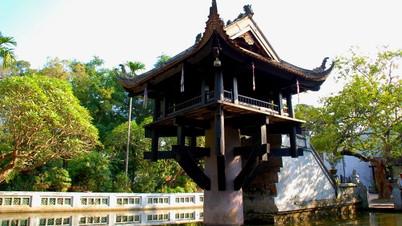






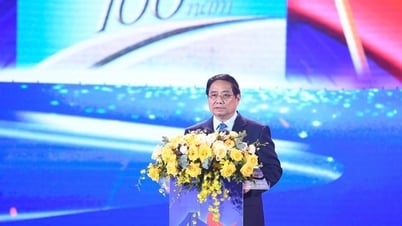

![[Infographic] Party Committee of the Ministry of Culture, Sports and Tourism: Marks of the 2020 - 2025 term](https://vphoto.vietnam.vn/thumb/402x226/vietnam/resource/IMAGE/2025/6/22/058c9f95a9a54fcab13153cddc34435e)
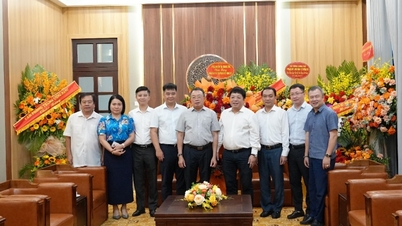






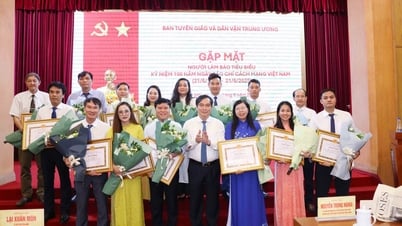
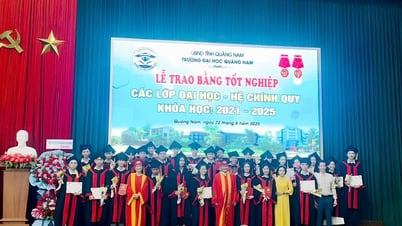
















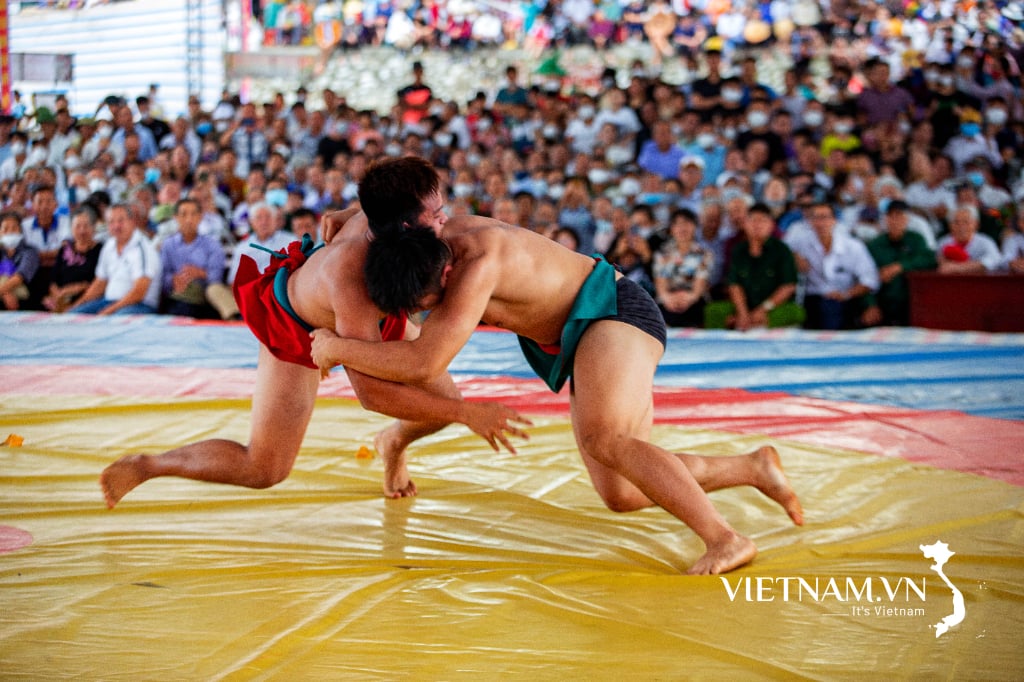
Comment (0)